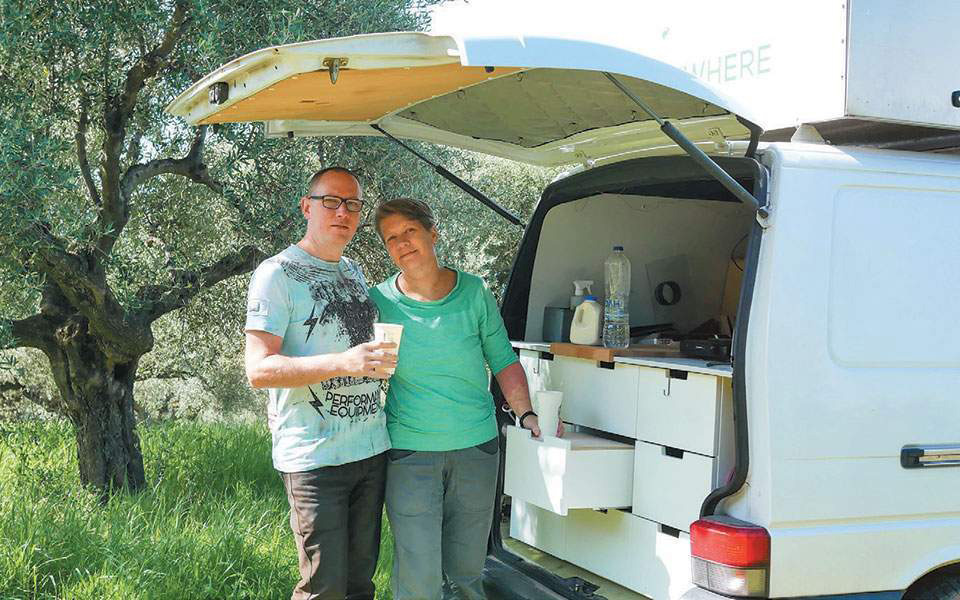Sandra and Eike Stehr are on Elaia Beach in the southwestern Peloponnese on what would have been an idyllic holiday under different circumstances. With blossoming wildflowers, empty beaches and a relaxed pace of life before the tourism season kicks into gear, spring is a particularly beautiful time in the region of Messinia – regarded by many tourists as the best season to experience Greece.
This is what the German couple were looking forward to when they planned their road trip in their converted camper van to Thessaloniki, Athens, Evia and then on to the Peloponnese, where they would board a ferryboat to Italy and drive back to their native Hamburg. Only now, the vehicle that had given them the freedom to go where they wanted when they wanted has become a prison.
“We came to Greece in November and planned to be back in Hamburg by Easter for my father’s 70th birthday in May. Our vacation in Greece was wonderful, as always,” Eike told Kathimerini.
Everything changed when they reached Messinia. “We don’t usually watch television and we haven’t got one in the van. And we don’t understand Greek, so we only listen to the radio for music. Everything was normal until March 11 when our cellphones started buzzing like crazy and we received the emergency [coronavirus] warning in English. That’s when we realized that something was wrong.
“We started looking at government websites for instructions on what to do. We knew about the spread of the coronavirus, but the situation was still calm in Germany, where there were no restrictions. We didn’t know that we were at risk of being stranded so we weren’t in any hurry to get back home.”
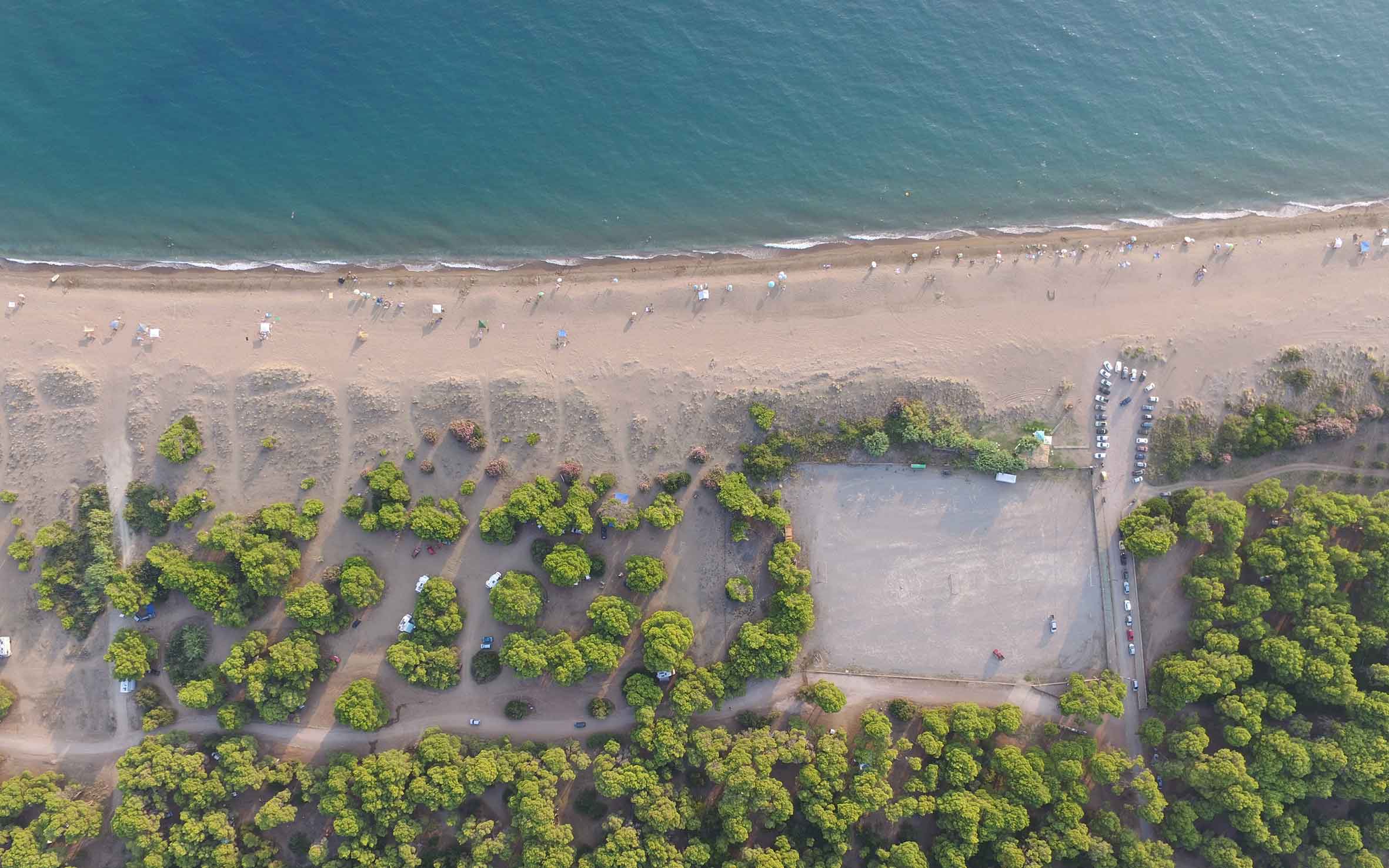
© Shutterstock
But stranded they were. “We read that we needed a printed application in order to be able to move around and, of course, we were stopped by the police during a shopping trip to the town of Zacharo. They did not fine us because they understood that we were foreign and uninformed. They pointed us to a spot where we could park our van and told us that we could only leave the area for essential shopping.”
Eike and Sandra are not the only tourists stranded in Elaia. “There must be at least 10 camper vans with people from Spain, Switzerland, the UK and Germany. The police imposed certain restrictions like making us park at a certain distance from one another and telling us to avoid contact. When we told our families what was happening, they were understandably worried. Our children are afraid because they don’t know when we will see each other again. Sometimes it’s really hard to reassure them,” says Eike.
The converted van is designed to give the Stehrs quite a bit of space, but there’s little room for storage. “Getting supplies from the local grocery store was the hardest part, but we eventually started shopping at a supermarket in Kyparissia. When we need water every couple of weeks we ask the locals. They have been very kind overall, but at the end of the day what can they really do? The people in the villages here work on their land in the winter and in tourism in the summer – and in between they are happy to have enough to just get by,” he says.
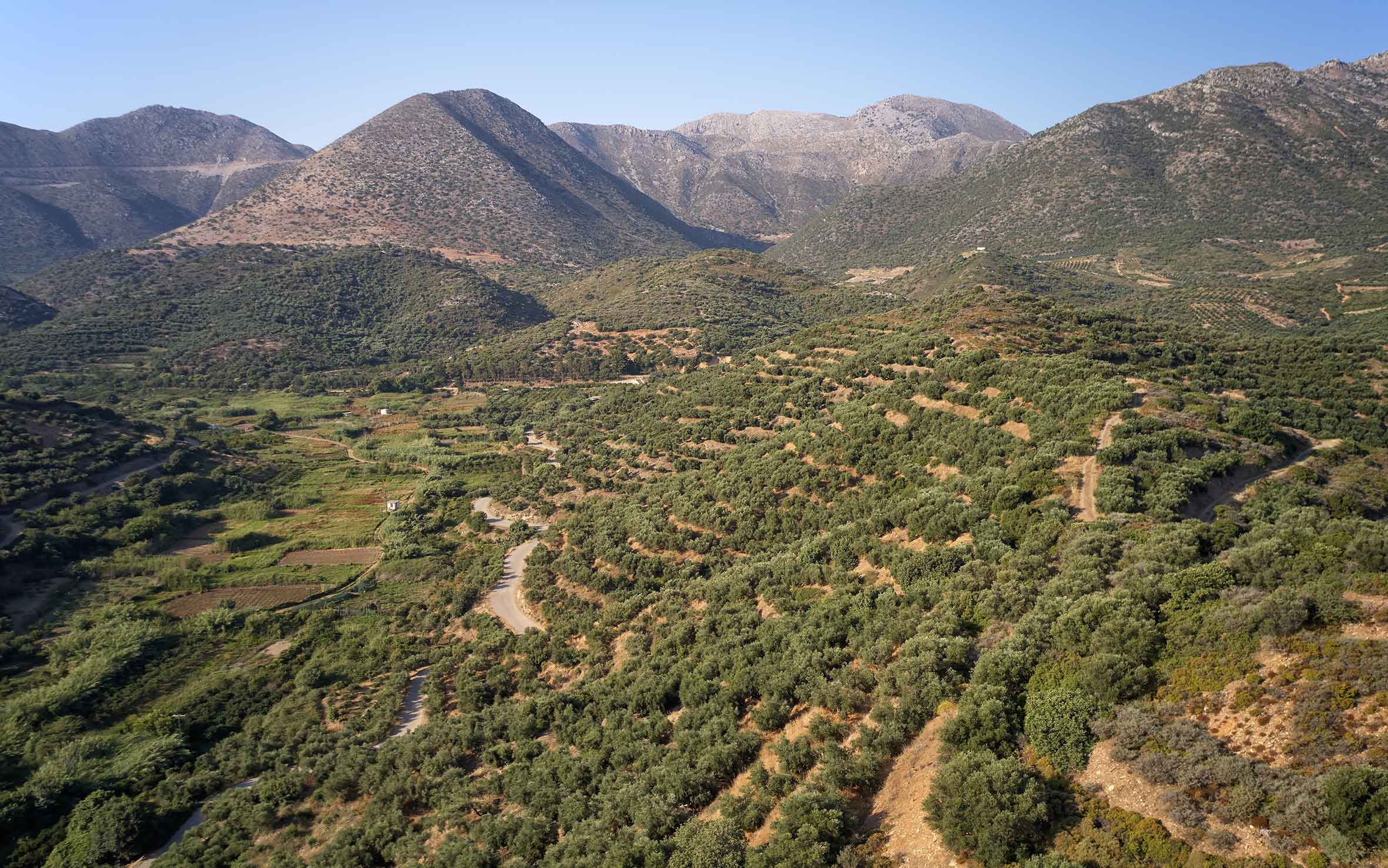
© Shutterstock
Like many Britons, Julia and Peter Farrer fell in love with Greece as backpackers in the 1980s. “We have traveled a lot and lived in many places, but there are some places that are in your heart, where you feel you belong. The Greeks are the best people, so we decided to buy a house in Paidochori in Hania in 2015. We wanted a home in a village and didn’t want to live among foreigners, but among Greeks, to learn the language, go to the church festivals, pick olives together,” says Julia, speaking from the Cretan village.
The couple came to Greece in January after spending the Christmas holidays in the UK. “When we heard about the coronavirus, we decided we would be safer staying in Greece. We also have a lot of elderly friends here and didn’t want to leave them alone. It turns out that it was the right choice because Greece handled the issue with a lot more determination than Britain did. The only thing we miss is our family,” she adds.
Life is simple in the village. “We don’t go to the shops more than once a week. We grow some vegetables of our own and don’t eat meat much, but it’s easy to get locally when we want it. We are lucky because anything you plant in Crete will grow. That’s how we spend our time here: gardening and doing household chores.”
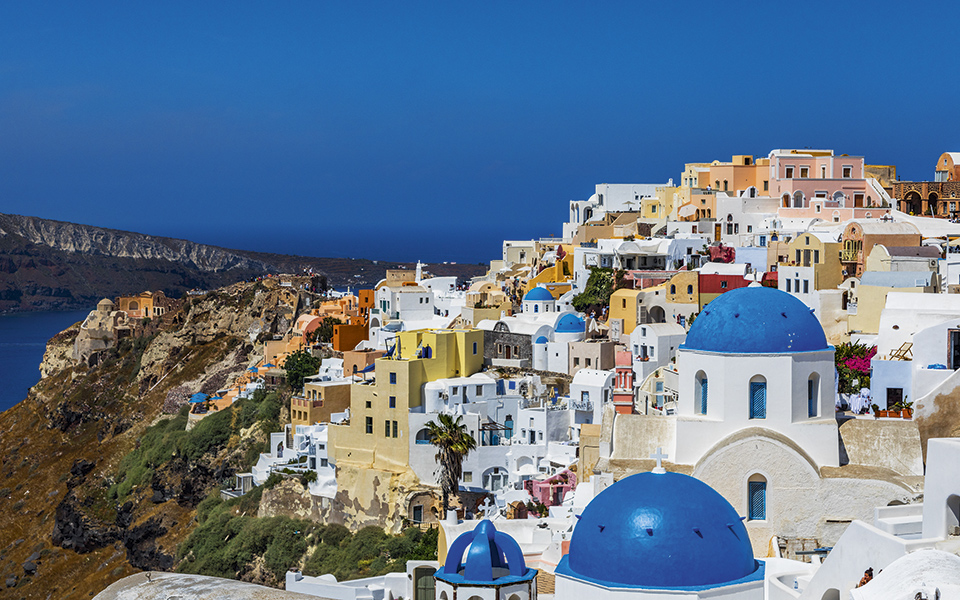
© Perikles Merakos
Erik and Gisela Witzleben are Germans who live in France but spend a good part of the year at their holiday home in Oia on the southeastern Aegean island of Santorini, which they first visited in 1972. “There weren’t many people here at the time; it was a poor island. My husband’s parents had a house here, which they had started by renting because foreigners were not allowed to buy property, and later purchased,” says Gisela. “We’ve been spending the winters here in the past few years and leaving for France and Germany in the summer.”
The couple came to Greece in November. “We prefer the winter. You can’t swim in the sea, but you can enjoy the view and taking walks. There are not many people around and everyone knows each other. We are very happy here, even though the island is no longer the same and has become a plaything for greedy people and investors from all over the world,” she adds.
When the coronavirus outbreak began, the couple decided to stay put. “We feel better here. The Greeks have been strict about following restrictions and this was obvious from the start. The island also has a brand-new hospital everyone says is fine. It’s better to be stuck in Oia than in some city. I can’t think of a better place,” says Gisela.
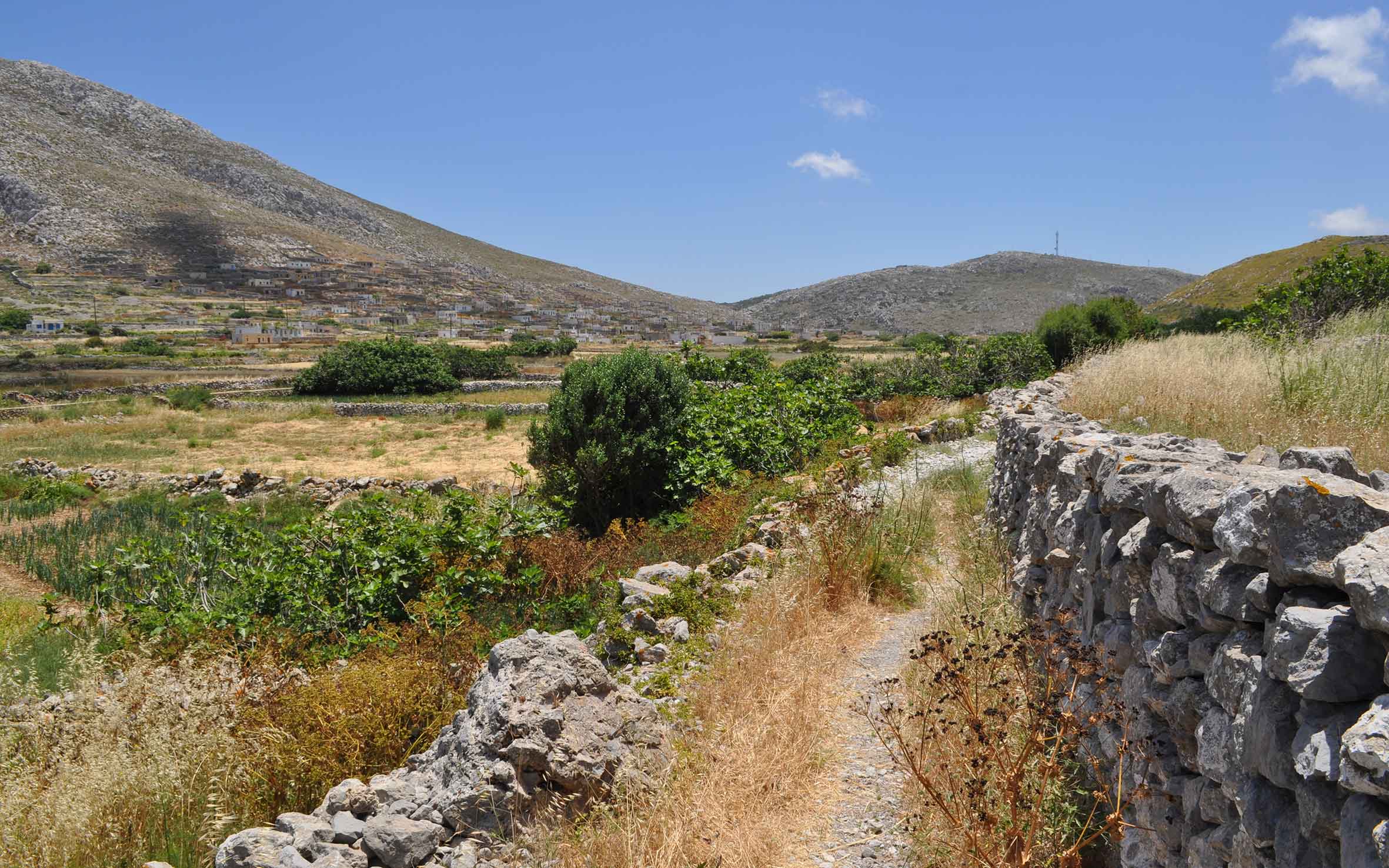
© Shutterstock
Our conversation with Gianni and Franca Urbinati coincided with the first reported Covid-19 case on the southeastern Aegean island of Karpathos, where they have a holiday home. “We came on February 21. Everyone knew we were Italian, but they didn’t know where from so when I told them we were from Rimini and not Milan, they relaxed. We came knowing that we were in good health. We would never have endangered the local population,” says Gianni.
The couple’s love affair with Karpathos dates back 15 years. “I first came here in 2003 and by day three I knew I had to have a home here. A year later, I bought a house in Ammopi. When I was still working, in an insurance company, I would only spend a few weeks a year here. Ever since I retired, we’ve been spending five months here in the summer and three in the winter. This year we had planned to return to Italy on March 30 and then come back to Karpathos in mid-May, but now we’ll be here all summer,” he adds.
The couple spend their days hiking and tending to their 1-hectare plot of olives, figs, pistachios and grapes. Gianni has a small boat he uses for fishing in the summer. “I feel really alive here,” he says.
Nevertheless, the news that keeps coming in from Italy is disturbing. “We have two children aged 35 and 38, who work and have families, so we are naturally worried about them. When we left on February 21, no one understood what was going on, we had underestimated the situation. We thought it would blow over fast and chose to come to Karpathos. I hope that Italy serves as an example for other countries so they don’t underestimate the problem as we did. I think that Greece acted in a much more timely manner.”
This article was originally published at ekathimerini.com.

